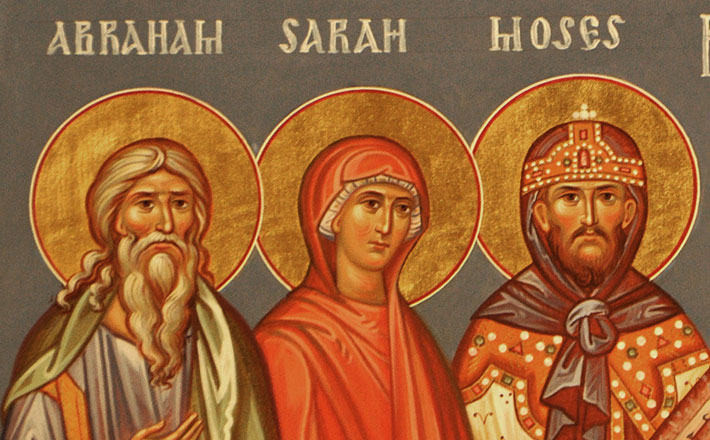Commentary on Psalm 22:23-31
From the utter abandonment of its opening line to its exuberant, full-throated praise in its final strains, Psalm 22 is a study in contrasts.
It is a prayer of one who is utterly alone, at the brink of death, beset with fear, and in extreme pain. Yet, somehow, by the end of the psalm, the psalmist has found a voice amidst the great congregation, a song of praise, faith, and gratitude in which he calls the whole world to worship God. Though the first half of the psalm does not actually appear in the lectionary, we must read it and preach it as a whole to understand it as a witness of transformation from lament to praise.
The cry “My God, My God, why have you forsaken me?” (v. 1) resonates with all who suffer and wrestle with the question, “how can God care for me and still allow this pain?” To know God, to cling to God’s promises, and to suffer radically produces a sensation of extreme disorientation.
When faced with this disorientation, one often comes to the conclusion that one is profoundly alone, that God is gone. Indeed, extreme anxiety about God’s proximity appears throughout the psalm (vv. 1, 11, 19).
When God is absent, trouble is near. The psalmist characterizes this clear and present danger as a community of violent ones seeking to destroy the psalmist with both words and actions (vv. 7-9, 12-13, 16, 18).
The divine absence is made even more painful by the memory that it hasn’t always been this way. The opening plea makes this point clearly enough. “My God, My God!” is a direct claim to a personal relationship that now seems lost.
The psalmist also cites a relationship with a community of faithful ones, those who praise God for God’s delivering power (vv. 3-5). Yet, even as the psalmist tries to associate himself with this community, he realizes that under no circumstances could he be counted among them now. There’s no place for worms in the community of praise (v. 6).
The psalmist was not born as a worm, but a precious child of God. In v. 9, the psalmist pictures God as the midwife who delivered him from his mother’s womb, one whom God has protected and cared for since birth (v. 10). Given this past relationship, God’s faithfulness from the cradle, the psalmist pleads, “Oh God, Don’t be far from me now!” (v. 11).
The psalmist needs God to come and dispel the enemy forces who are depicted in protean imagery that progresses from bulls to lions (vv. 12-13) to dogs and finally evil people (in v. 16). This same pattern appears later in the lament, in exactly the opposite order. Beginning in v. 20 the psalmist pictures those human enemies as a sword-wielding foe. Then he casts his enemies collectively as the wild dog, then the lion, and then the bull. Between the reference to the lion and the bull, however, something seems to have happened. The NRSV renders the text of v. 21: “Save me from the mouth of the lion and from the horns of the wild oxen you have rescued me.”
The Hebrew text presents a sequence of imperative verbs in this portion of the psalm: “Don’t be far away! Come! Save! Deliver!” (vv. 19-20) Then, suddenly, in the middle of v. 21, a perfect verb appears: “you have rescued me.” It is critical to note at this point that Hebrew does not relay tense in verbs like English does. This perfect verb, translated “you have rescued me,” does not necessarily indicate that psalmist has actually been rescued at the moment he utters the word. Rather, the Hebrew indicates that the psalmist is viewing the activity of “rescuing” as a completed action that might come in the past, present, or future. The psalmist is describing it as a complete whole, confident in the reality of the rescue — even if the rescue has yet to happen.
Immediately after the psalmist utters his confident words, we see a reintroduction of the faithful community. “I will tell of your name to my brothers and sisters, in the midst of the congregation I will praise you” (v. 22). The psalmist had sung of a faithful community earlier in the psalm, vv. 3-5. In those verses he lamented that the legacy of his ancestors is not consistent with the psalmist’s experiences of God. Yet at this point in the psalm, the isolation from the community has been transformed into sisterhood and brotherhood. The psalmist invokes his immediate community, that is, all of Jacob’s descendants, to sing (v. 23). The lament, a product of isolation and abandonment, is transformed into praise that takes place within a community of delivered ones.
Yet the community of praise is not limited to Jacob’s descendants. The community of praise extends beyond Israel’s borders. “All the nations … all the families of nations” worship before Yahweh (vv. 27-28). Just a few verses ago, we heard “all who see me mock me” (v. 7). Now we hear, “All nations will praise you.” Universal ridicule has been transformed into reverence.
The circle of praise spreads even wider, extends beyond time itself. For those who are dead are praising God and then those who are yet to be born are joining in with the psalmist, saying “The Lord has done it!” (v. 31).
How did the hope break through so powerfully? The turn to praise is locked within the very structure of the prayer (note again the chiastic presentation of the enemies in vv. 12-13, 16 and vv. 20-21). In the very act of crying out to God, one’s sorrow can be turned to joy, one’s petition to confidence, and one’s lament to praise.
This basic structure of transformation appears in the structures of our communities’ prayer and piety. The movement from petition and supplication to praise and adoration provides the foundation of the weekly Service of Word and Sacrament. It is the pattern of Lent and Easter, in the very passion of our Lord, from humiliation to glorification. Indeed, the Gospel writers saw the transformation of Psalm 22 realized and actualized in the death and resurrection of Jesus.
Psalm 22 is an ancient prayer that invites the godforsaken to utter the seemingly unutterable words, that God is gone — to pray those words to God, and then see what happens. The outcome is that the psalmist moves from isolation to integration, from forsakenness to worship.


March 1, 2015